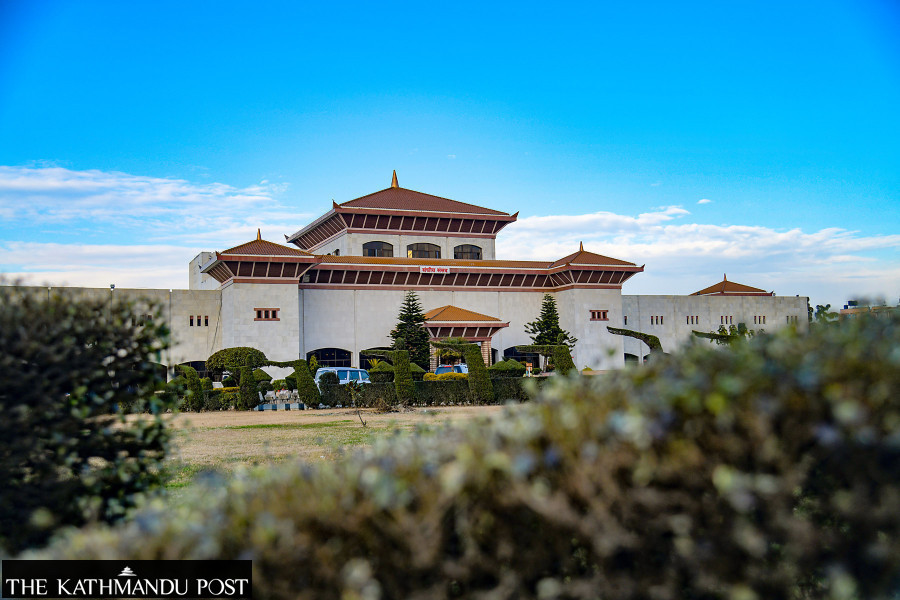National
House endorses bill on oath, seven years after constitution promulgation
Confusion had arisen over oath-taking in the absence of a law. The new law will come into force after President’s approval.
Binod Ghimire
Nearly seven years since the promulgation of the Constitution of Nepal, the federal parliament has endorsed a bill related to the oath for the persons holding public offices.
Article 80 of the constitution promulgated in September 2015 says the prime minister, the deputy prime minister and ministers shall take the oath of office and secrecy before the President, and ministers of state and assistant ministers, before the prime minister, as provided for in the Federal law, prior to assuming their respective offices.
However, there is no law related to the oath of the prime minister, deputy prime minister and ministers. The bill that was registered at the Parliament Secretariat in October last year was forwarded to the House of Representatives after approval from the National Assembly.
The new law on oath will come into effect after the President’s authentication.
“The bill is prepared to guide the oath of the President, Vice President, members of the Federal Parliament and chiefs of the provinces as prescribed by the constitution,” reads the preamble of the bill.
In the absence of the law, KP Sharma Oli in February 2018 took the oath and secrecy based on the format the President’s Office had. So did his ministers. Later, the oath was guided by a law issued through an ordinance by the erstwhile Oli government.
It too lapsed on September 15 last year as the Parliament couldn’t endorse the ordinance within two months since it was introduced.
“A new bill was necessary as there is no federal law to guide the oath of the persons holding public positions,” Ghanashyam Khatiwada, a CPN-UML lawmaker, told the Post. “It is good that it has been endorsed though there are some provisions that need clarity.”
Khatiwada had registered an amendment seeking a revision in the bill with a provision to have a proper dress code while taking oath. The amendment proposal, however, was rejected by Parliament.
The constitution made it mandatory to have the laws related to the fundamental rights in place within three years since its promulgation. It also said the existing Acts that contradict the constitution must be revised within a year since the first meeting of the Federal Parliament. The government prepared the laws within the constitutional deadline. However, as there was no such constitutional deadline for the promulgation of federal laws, the successive governments didn’t prepare the bill related to oath on time.
On May 14 last year when KP Sharma Oli took the oath after being reappointed as prime minister, he skipped the part where he had to ‘commit’ to serve the people in the name of god. As the President read out the line for Oli to repeat, the latter said “that is not necessary,” sparking public criticism.
Now onwards, everyone holding public office must follow the specific format prescribed in the law.
“The oath was being administered on an ad hoc basis in the absence of the law,” Bishal Neupane, a lawyer, told the Post.
Neupane had moved the Supreme Court on September 28 last year arguing that the administration of oath to Foreign Minister Narayan Khadka was unconstitutional because there was no law on oath-taking as the ordinance on the oath had already expired on September 15. However, the court didn’t issue an interim order against the oath of Khadka as demanded by Neupane. His petition is still sub judice.
“The objective of my petition has been served with the endorsement of the bill,” he said.
Along with the bill on oath, the House of Representatives also endorsed the bills related to statistics and Kathmandu Valley’s public transportation.




 14.24°C Kathmandu
14.24°C Kathmandu















